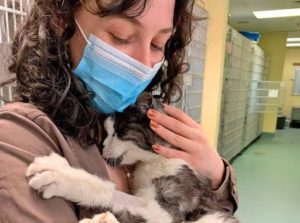
In the programming world there is Linus’ Law: with enough eyes, all bugs are shallow. With enough people watching every concern becomes obvious. In ethically nonmongamous groups like polyamorous or swinger communitie we could say with enough partners all abuse becomes obvious. Frustratingly, this is not always the case and is often missed by those most affected, the victims and survivors. As a greater culture we are still struggling to deal with abuse in relationships which is a point of concern worldwide. According to the recent survey conducted by an American Psychological Association (2020) 75% Americans suffer from abuse in their relationships, which is an alarming number.
What is abuse?
Abuse is defined as a threat to one’s identity. Abuse occurs when one person hurts the other person intentionally while exercising control, they don’t give up their victims or survivors easily. Open relationships thrive on autonomy, often specifically acknowledging no one has the right to control another. It is heart wrenching to see people we love perpetuate abuse or be abused. Today we’ll look at types of abusers.
Situational
A couple begins arguing, something minor, something they won’t even remember in a week. They’re flooded, this mole hill is definitely growing in to a mountain. Neither are listening, tempers are rising, and shouts are getting louder. One pushes the other, the other pushes back, one hits the other’s shoulder, the other pushes back harder, one slaps the other, the other grabs them. When the fight is over, both are shaken up, nobody feels good or justified in how they acted, both sides feel they should apologize. The abuse doesn’t form into a pattern, doesn’t escalate over time, is usually specific to the moment, usually mutual, and often fixable with relationship therapy focusing on communication skills and conflict management.
Characterological
A partner looks in the sink, the meat hasn’t thawed enough. A cold sweat breaks out and they can hear the voice of the person they love yelling at them, calling them names, telling them they’re worthless. The partner scrambles to come up with another plan for dinner, all in all, they do a pretty good job. Over dinner there are a dozen pointed questions and verbal jabs, the one they love is ramping up, getting angrier, and there doesn’t seem to be any way to stop what’s coming next. The one they love throws insults, plates, and fists. It’s been getting worse for a while now. Characterological abuse has easily identified roles between abuser and victim or survivor, shows clear differences in power and control within the relationship, and escalates over time. Therapy is only possible to repair the relationship if:
- The abused has some agency and power within the relationship
- The abuser can take responsibility for the damage they have done
- Both partners want to repair the relationship
- Physical abuse is not used to instill fear, intimidation, or compliance
- There have been no injuries
- Both partners are not afraid of the other
If these conditions are not met, therapy is not recommended. Within characterological abuse we see two types, the cobra and the pitbull.
Cobras
Cobras come off as charming and seem to have a built in radar for hurt people to take advantage of. Seductive and well versed in the courtship game, victims are often surprised once they realize the extent of the manipulation. Cobras quickly resort to belligerence and threatening behavior, and are most likely to use a knife or gun. As situations escalate, they calm down, seeming to enjoy the torment of others. Finally, power struggles, control seeking, and violence can be seen in other relationships outside of romantic ones.
Pitbulls
Pitbulls focus their abuse specifically on their romantic partner as they are motivated by fear of abandonment. Much like dogs with rabies, knowing how the dog got rabies and it’s not the dog’s fault it has rabies, the dog still rabies and is unsafe. Jealousy leads them to socially isolate their partners, becoming belligerent, condescending, and lecturing. As their anger builds so does their contempt until they boil over into violence.
Interpersonal Violence (IPV), the cool new term for Domestic Violence (DV), can happen to anyone, many victims and survivors unaware or unable to see their world for what it is. We will continue next week with forms of abuse, then how to help yourself or others in abuse. In the meantime, if you or someone you know is in danger there are likely resources near you. A bit of help.
Finally, some eyebleach!

Next week we will look at forms of abuse.
Have any thoughts, questions, suggestions, or comments on this article? Broken link? Wondering how to this can be applied, modified, or adapted to your polyamorous, swinging, kink/ BDSM, or otherwise interesting relationship? Feel free to reach out to us here.
